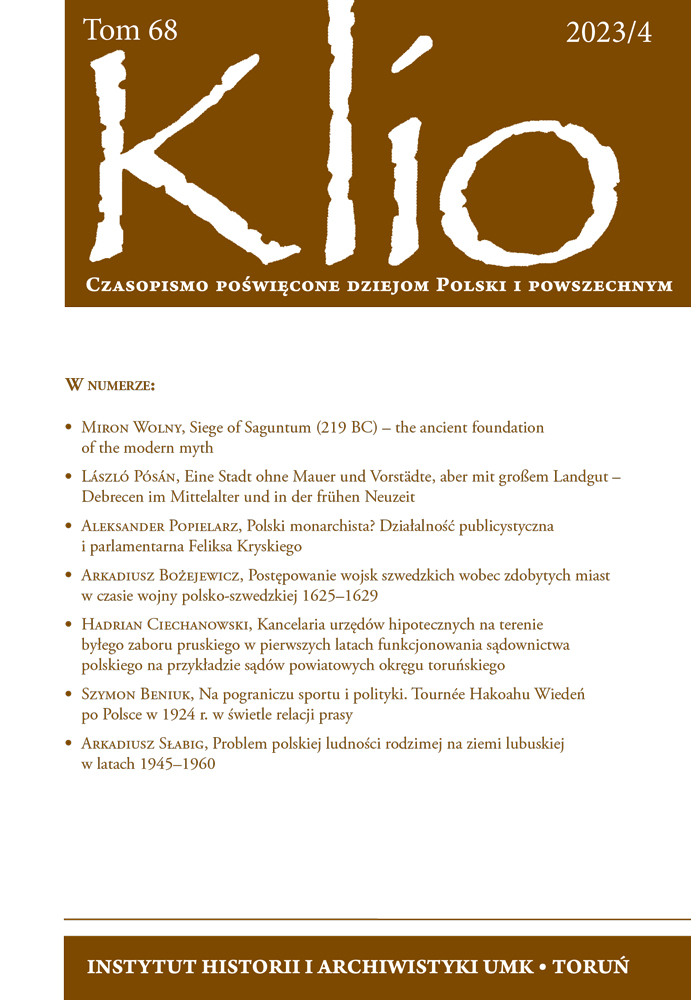Eine Stadt ohne Mauer und Vorstädte,
aber mit großem Landgut –
Debrecen im Mittelalter und in der frühen Neuzeit
A town without city walls and suburbs, but with a large estate:
Debrecen in the Middle Ages and early modern times
Author(s): László PósánSubject(s): Political history, Social history, Rural and urban sociology, 13th to 14th Centuries
Published by: Wydawnictwo Naukowe Uniwersytetu Mikołaja Kopernika
Keywords: medieval and early modern town; suburbs; economy; landed estates;
Summary/Abstract: Unlike most other European cities, Debrecen, on the eastern edge of the Great Hungarian Plain, developed rapidly in the Middle Ages and became the most populous, largest and wealthiest city in Hungary in the early modern period, with neither walls nor suburbs. Its own and rented land made it one of the most significant landowners in the country, with large-scale cattle farming. The oxen fattened on the plains (Hun. puszta) were sold in markets in Italy, Austria, Germany and Silesia. In addition to cattle exports, Debrecen also traded extensively in many other products, being at the intersection of the main north-south and east-west routes across the Great Plain. Its development was greatly facilitated by its landlords, who were the chief royal officials of Hungary in the 14th and 15th centuries. Debrecen was formed as a manorial centre in the second half of the 13th century by the merger of three villages and was granted a charter of city privileges by King Louis I in 1361. In 1405, Sigismund of Luxembourg allowed his citizens to build stone walls around their cities, but Debrecen’s considerable size, the lack of stone on the plains, and thus the high construction costs, meant that the city did not build stone wallssubsequently either. This allowed it to grow, and so, unlike in walled cities, no suburb developed in Debrecen. The earth bank and the palisade wall that surrounded the town were gradually moved outwards over time, following the growth of the city.
Journal: Klio. Czasopismo poświęcone dziejom Polski i powszechnym
- Issue Year: 68/2023
- Issue No: 4
- Page Range: 25-48
- Page Count: 14
- Language: German

